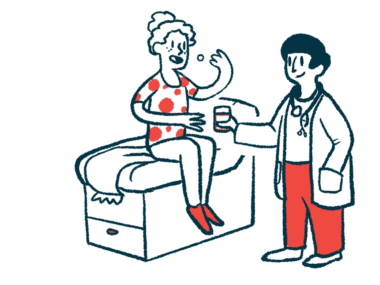Patient registry launches to track myasthenia gravis care
Thermo Fisher database to gather information on ocular, generalized MG
Written by |

The first patient has been enrolled in a myasthenia gravis (MG) registry to collect clinical information from real-world settings across the U.S., with the aim of better understanding the disease and ultimately improving care.
Thermo Fisher Scientific’s newly launched registry is recruiting people with the ocular and generalized types of MG who are treated by neurologists in both academic medical centers and private clinics.
More than 70,000 people in the U.S. have an MG diagnosis, according to Thermo Fisher.
“Data collected prospectively [over time] in this new clinical registry will enable us to study progression of disease and evaluate the safety and effectiveness of medications,” Peter Wahl, vice president and global head of scientific affairs for PPD CorEvitas Clinical Registries, said in a company press release. “It will also help us understand the impact of the disease with respect to clinical burden as well as from the patient perspective.”
The registry is the 14th of Thermo Fisher’s PPD CorEvitas Clinical Registries. Currently following more than 100,000 patients over time and involving more than 500 research sites, these registries have been accepted by regulators as long-term safety studies of approved therapies across several diseases.
Symptoms vary, may come and go
MG is caused when the immune system produces self-reactive antibodies that mistakenly interfere with the communication between nerves and muscles. This results in MG symptoms such as muscle weakness and fatigue that can come and go, and often worsen with activity but improve with rest.
While the disease can affect anyone, it is more common in adults. Some patients may have only eye-related symptoms, such as drooping eyelids or double vision, in which case they are said to have ocular MG. Others develop generalized MG, which causes widespread symptoms in the body.
Although there is no cure for MG, medications and other treatments can help manage symptoms. Still, some patients may experience a myasthenic crisis, a life-threatening episode that involves muscles required for breathing or swallowing. This can require emergency treatment such as intubation or mechanical ventilation.
The new registry was developed with input from James Howard, MD, a professor of neurology, medicine, and allied health at the University of North Carolina at Chapel Hill, and Michael Benatar, MD, PhD, a professor of neurology and public health sciences at the University of Miami.
“As with all of our registries, our aim is to build an infrastructure that supports a long-term commitment to regulatory-grade data collection, advancing real-world research and improving lives for patients diagnosed with MG,” Wahl said.




Leave a comment
Fill in the required fields to post. Your email address will not be published.